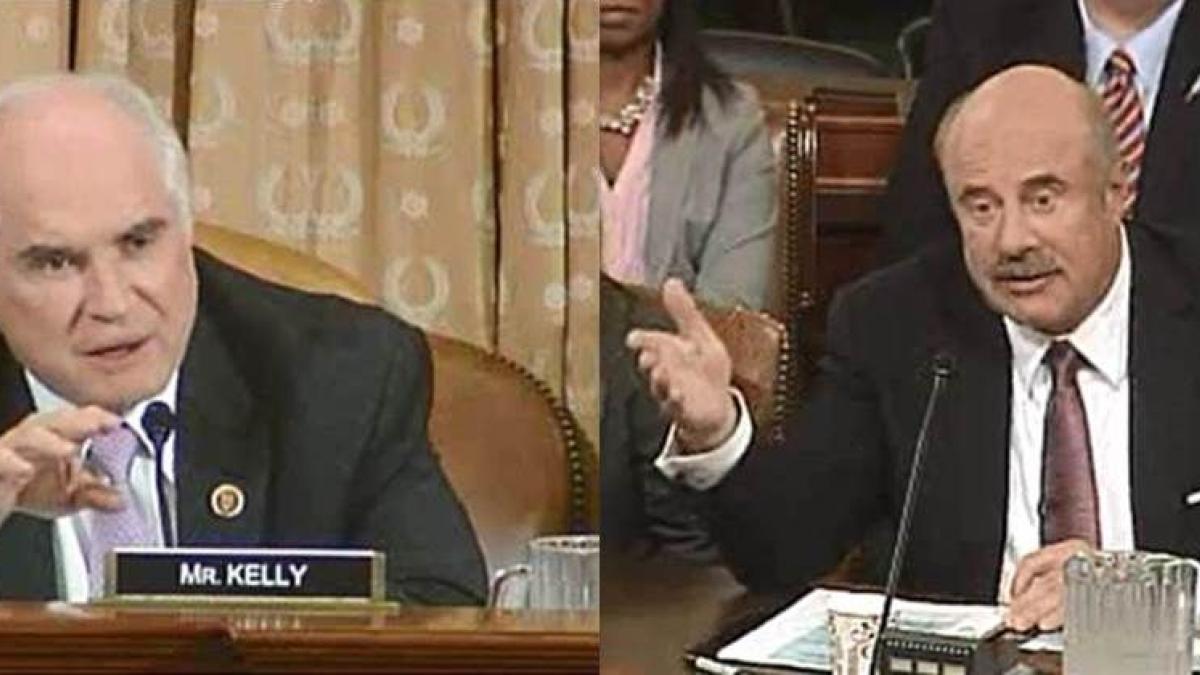Rep. Kelly Speaks Out on Caring for Foster Children

Addresses issue at Ways & Means hearing with TV’s Dr. Phil
WASHINGTON — Representative Mike Kelly (R-PA) – a member of the House Ways and Means Committee – delivered remarks at yesterday’s Human Resources Subcommittee hearing titled, “Caring for Our Kids: Are We Overmedicating Children in Foster Care?” The hearing focused on what is known about the use of psychotropic medications by children in foster care, how states have implemented recent federal laws designed to ensure such medications are used appropriately, and how the federal government can continue to work with states to improve the oversight of these medications to ensure youth in foster care receive appropriate help. The witness panel included testimony by Phil McGraw, Ph.D., host of the television show Dr. Phil.
Highlights of Rep. Kelly’s remarks:
“It seems to me that because we’ve had such a huge breakdown in the family unit that we have more of these children out there that cannot be taken care of by a mom and a dad in what we would consider a traditional family unit. So overwhelmingly, and I was reading the numbers: 400,000 children right now in foster care since 2012.”
“Who determines that an intervention is necessary? I think that’s the part that bothers me. I’ve got 8 grandchildren right now and 9 and 10 are coming, and no two of them are alike. Some are more challenging than others. The ones that are the most challenging I would say this problem is in these medications, I would say maybe [he or she] needs some more parenting. I worry about it.”
“Dr. Phil you deal with folks all the time, I’ve watched you a couple times on TV … I see this breakdown of the family … and I think we keep looking for government programs that somehow will do the job that families no longer do. I grew up in an altogether different time, and I will tell you when I talk to my friends, we agree on one thing: we grew up in the greatest towns, at the greatest times, with the greatest parents, preachers, teachers, coaches you could ever imagine, and a family support system. We didn’t have as much of a support system government supplied; we had it family-supplied and that’s the part that bothers me. I look at a society that is going more to government for answers than it is to internally—families making decisions; families deciding what to do to help a child; families being involved in the final determination of who goes on what or what they get prescribed to them. You see it great numbers, you all see it in great numbers: if our families continue to break down the way they’re breaking down, there’s not enough money in the world to take care of these children that are just out there going around aimlessly.”
“It’s a socialization process we’re missing out on today. I’ve got to tell you—the way I grew up, there wasn’t anybody substituting for my mother or my dad. … I think there’s too many children out there who do not have the benefit of having a strong nuclear family. I think that’s the number one problem. If you don’t have a strong nuclear family, if you don’t have strong faith-based folks, you’re not going to be able to get through it on your own. You just can’t learn it by yourself through a book or through a program.”
###